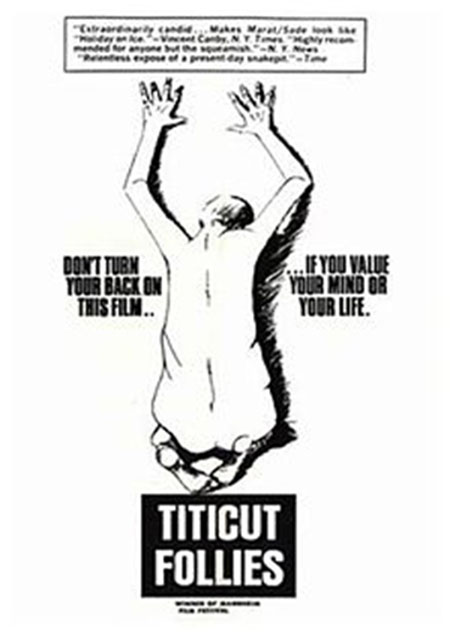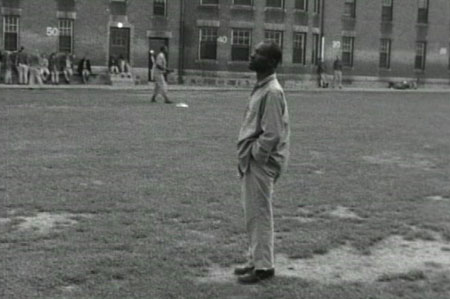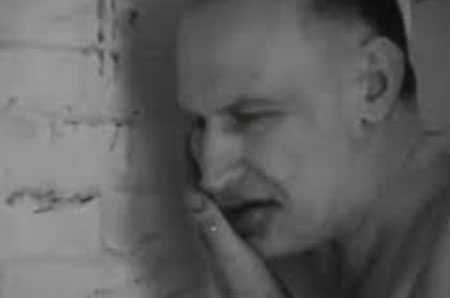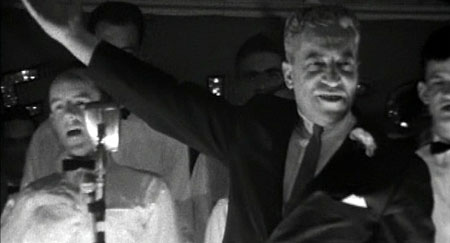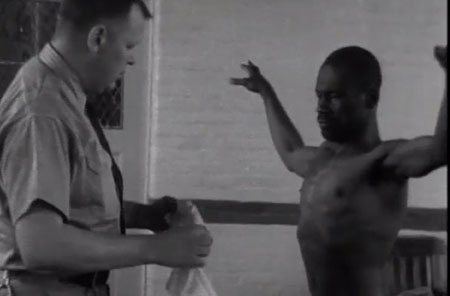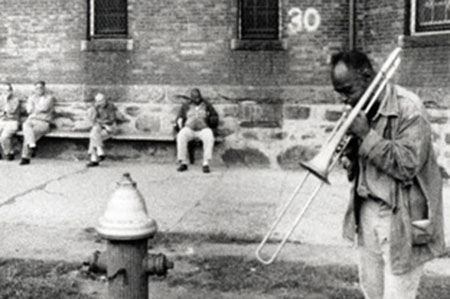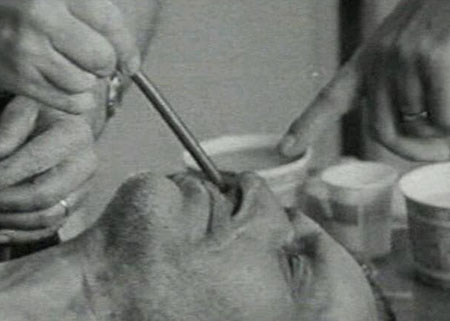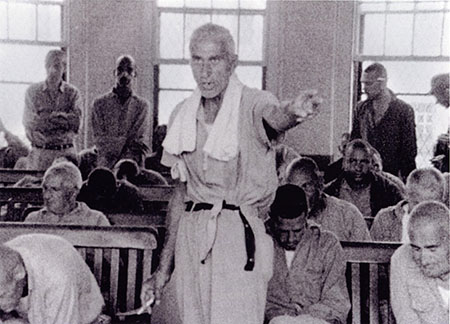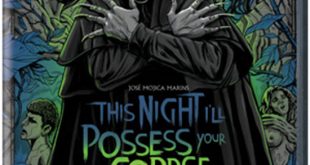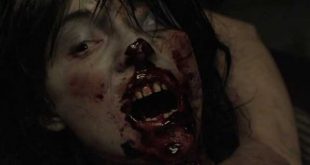SYNOPSIS:
Filmmaker Frederick Wiseman exposes conditions at a Massachusetts hospital for the criminally insane.
REVIEW:
Frederick Wiseman is a highly accomplished documentarian, with over 40 films to his credit (and still counting). His approach is very much a “fly on the wall” method, where he steps back and out of the way and just films, capturing as close to the true essence of his subject matter as possible, short of the hidden camera approach.
There is often no narration, and the filmmaker is not a “character” in his films. In High School, he simply films the goings on of a normal day in high school, detailing the interaction between students and teachers. In Hospital, he films the daily happenings in a hospital, the interactions of patients and doctors. But it all started in 1967, with the release of the now infamous, and highly influential, Titicut Follies.
We open with a sort of variety show going on, a group of men singing a song for an audience, and behind them on the curtain reads “Titicut Follies.”
Then a man comes onstage and tells a joke. It’s a calm way to ease in to the subject matter at hand, because this is all being filmed at the Massachusetts Correctional Institution in Bridgewater, Massachusetts, and these folks are patients/inmates there. So when we cut from the variety show to men being strip searched, their clothes rummaged through and tossed aside, it serves as kind of a jolt. When we start hearing from some of the inmates, our eyes are opened even further. There’s the repeat offender pedophile, who got busted for having sex with an eleven year old girl, and insists that he knows there’s something wrong with him because he masturbates three times a day. There’s the guy going on a racist rant about JFK and “the blacks.”
There’s the guy who swears he is psychic and goes on and on about how religious people are criminals, while behind him in the yard another inmate stands on his head and sings a religious song. These aren’t characters in One Flew Over the Cuckoo’s Nest or 12 Monkeys, these are very real people in a time when mental health was a very real problem without any (known) real solutions.
In a word, it’s horrifying to see how some of the inmates are treated. We don’t know the severity of the crimes they committed that brought them here, but we do know that they all suffer from, or have been diagnosed with, some type of mental illness. Their symptoms are wide-ranging, but their conditions are aggravated by the instigation of some of the guards. When a man’s room is messy, the orderlies taunt him while cleaning it. While another man is shaved, he is teased, almost constantly, by being asked the same questions over and over, then led to his room where he pounds on the wall and stomps around, only to be teased more. Patients are left naked, sitting around in their own filth, mistreated, all under the guise of mental health care and rehabilitation.
Titicut Follies is not an easy film to watch. An inmate who refuses his meals is force fed with a tube down his nose. Another inmate passes away, and we get a sequence of his body being “fixed up” for the funeral, where he is shaved and cotton is shoved into his eye sockets. Inmates rant about their medication not working, about the government, about worrying that someone is out to hurt or even kill them, obvious displays of paranoia that you can’t help but feel bad about. Ironically, this was the first American film to be banned not for obscenity, but for invasion of the inmates’ privacy.
In what seems like a swipe right back at the Massachusetts Supreme Court, there is a disclaimer at the end of the film stating that the court ordered a statement be included that changes and improvements have taken place since the filming, followed by the exact statement, word for word.
Wiseman and his camera operator, John Marshall, spent 29 days in the state run facility, then cut their footage down to the 84 minute running time. At no point does Wiseman have to take the approach of editing sequences out of context to force a point or send a message to the audience, as some documentarians have unfortunately resorted to. No, the images on screen are powerful enough to let the audience draw their own conclusions. This is a very well made film depicting a specific period of time in America, the first of many such films created by Wiseman. That being said, it is probably not a film a mainstream audience will appreciate. It is upsetting and contains uncomfortable but real images of our world, and while I would recommend that everyone see it, realistically I know that’s not going to happen.
 Horror News | HNN Official Site | Horror Movies,Trailers, Reviews
Horror News | HNN Official Site | Horror Movies,Trailers, Reviews
